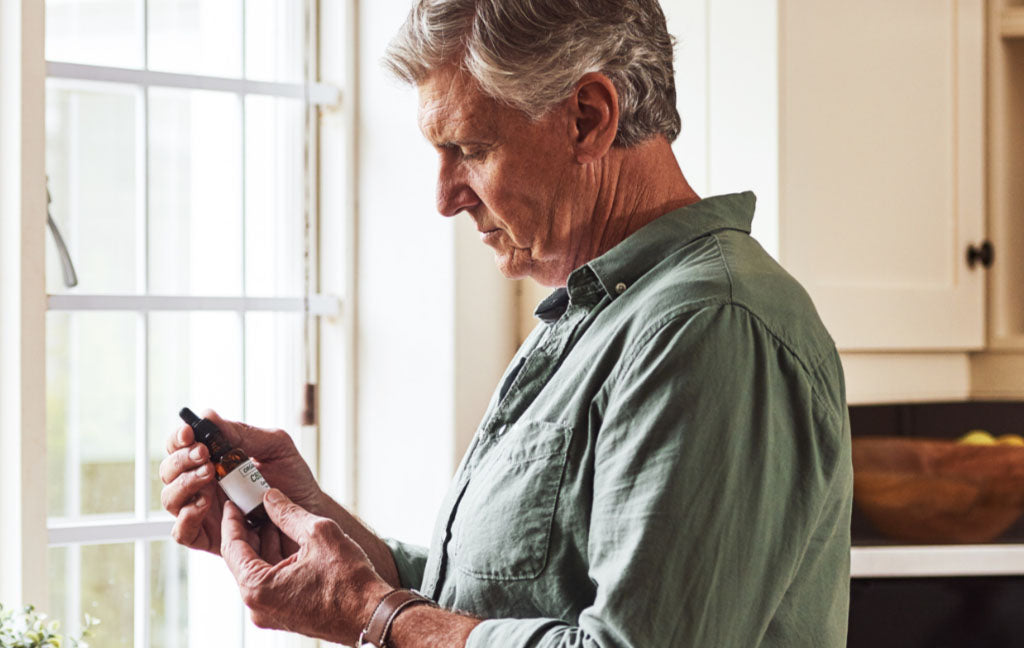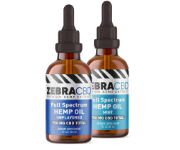
Are you new to the CBD industry? Has a doctor or a friend recommended you try CBD for stress, tension, or helping with discomfort? If you’re anything like the millions of other first-time CBD users in the country, the thought of taking something that’s so closely related to marijuana might make you nervous. Naturally, you might ask questions like, “Can CBD oil get you high?”
It’s a fair question, and since there are far too many people unable to distinguish between the two or who use them interchangeably, it’s crucial that you yourself know the truth before you try CBD oil. Below, we’ll help facilitate the discovery process by discussing everything you need to know about marijuana, hemp, THC and CBD. We’ll also dive into providers to trust and Third-Party testing which all of our products undergo rigorously — including our CBD tablets, oils, balms, rubs, edibles and CBD oil for sale.
So, keep reading to discover more.
Does CBD Oil Make You High?
In a word, the answer to the question “does CBD oil make you high” is a resounding no. There is a caveat, however; it’s a no, so long as the CBD you’re using actually is pure CBD from the hemp plant.
But what does that mean?
Well, before we can explain, it’s critical to first discuss THC and CBD. Both are categorized as cannabinoids, of which there are more than 100 of these unique compounds found within the cannabis and hemp plant.
According to UCLA health, the most well-known cannabinoid is delta-9-tetrahydrocannabinol (THC), which is responsible for the “high” of cannabis and can affect perception, mood, emotion, cognition and motor function. While THC does have medicinal benefits, this psychoactive cannabinoid is not what most cannabis product users are looking for (typically due to its intoxicating effect). But there are also cannabinoids like cannabidiol (CBD) which are non-psychoactive yet have been demonstrated to possess medically useful properties.
... cannabinoids like cannabidiol (CBD) ... are non-psychoactive yet have been demonstrated to possess medically useful properties.
Our bodies have natural cannabinoid receptors spread throughout the brain. These are responsible for regulating a host of bodily functions, including:
- cognition
- memory
- pleasure
- motor coordination
- sensory experience
- time perception
When cannabinoids such as THC (tetrahydrocannabinol) or CBD (cannabidiol) attach to acannabinoid receptor, their normal functions can be impacted for better or worse.
What Is THC?
Here’s something that might surprise you. Did you know that hemp and marijuana are not the same thing? Although they have similar properties, hemp has only trace amounts of THC. In fact, to be legally categorized as hemp, the plant can’t contain any more than 0.3% THC.
But what is THC?
THC is the primary compound in marijuana responsible for its psychoactive effects. These psychotropic cannabinoids are stored primarily in the resin secreted by the plant’s gland, of which the highest concentration will be the reproductive organs (the flowers) of the cannabis plant. While each plant is different, some marijuana strains can have THC levels that are as high as 30% to 40%.
And how does it impact the brain?
When smoked or consumed properly, THC is responsible for that telltale marijuana “high.” The more you consume, the more impact it will have upon your brain. Live Science writes:
THC stimulates cells in the brain to release dopamine, creating euphoria, according to NIDA. It also interferes with how information is processed in the hippocampus, which is part of the brain responsible for forming new memories … In some cases, reported side effects of THC include elation, stress, tachycardia, short-term memory recall issues, sedation, relaxation, pain-relief and many more.
Now, everyone reacts differently to THC. Yet, when consumed, most everyone can reasonably expect to experience some, if not all, of the following mind-altering symptoms:
- euphoria
- relaxation
- hunger
- heightened senses
- distorted sense of time
- decreases motor skills
- lowered inhibitions
- impaired focus
- short-term memory loss
There are those who enjoy and actively pursue the THC high, particularly users who’ve been smoking marijuana for a long time. In fact, scientists posit that it’s the THC that contains the addictive component of marijuana. On the other hand, there are other users that wind up feeling uncomfortable, paranoid, and impaired with just a single puff of weed. Regardless, there’s no doubt that it has a psychoactive effect that hampers a person’s ability to go about their day normally to some degree or another, unlike CBD.
What Is CBD?
Although marijuana has been the ignominious face of the cannabis debate for decades, now it’s taking a back seat to CBD, which appears to have natural benefits without all of the psychoactive drawbacks. This is why, in the 2018 Farm Bill, CBD oil products derived from hemp plants containing less than 0.3% THC were made legal nationwide. As Forbes noted at the time, “We think the tide has turned significantly in America's stance on cannabis decriminalization and this Farm Bill is a key first step towards this milestone.”
It stimulates the receptors ... This is the 'good feeling' that might wash over you when you consume CBD but it is entirely different from a marijuana high.
CBD can be found in either the marijuana or hemp plant but tends to be more highly concentrated in the latter. So, when we answer the question “will CBD oil get you high,” the answer is a “no” so long as it's CBD derived from a hemp plant containing no more than 0.3% THC. The effects of CBD are different, and you can expect to feel some variation of the following positive feelings:
- calm
- relaxation
- comfort
- balance
- relief
Although CBD does impact cannabinoid receptors, it doesn’t attach directly to them like THC. Instead, it stimulates the receptors, causing them to increase your endocannabinoid production levels. This is the “good feeling” that might wash over you when you consume CBD but it is entirely different from a marijuana high.
CBD Oil
Today, CBD oil is created by isolating and extracting pure CBD (CBD extract) from the hemp plant and then mixing it with some sort of carrier such as coconut oil. As such, there are a variety of ways to use CBD. It can be consumed in the form of cbd capsule, tincture, tablet, rub, balm, vaped, or taken in the for of CBD edibles like a CBD gummy or mint. It can also be applied in a topical form like CBD lotion or CBD cream. In addition, it’s worth noting that CBD is regularly sold under two different classifications:
- full spectrum CBD – This type of CBD has all of the cannabinoids (THC, CBD, et al.) and terpenes. All of these components work together to create an entourage effect that maximizes the medicinal effects of CBD.
- broad spectrum CBD– This type of CBD is further refined in the extraction process to remove all THC. Broad-spectrum CBD contains 80% to 90% CBD, no THC and a reduced level of other cannabinoids.
Although we currently lack scientific consensus, as Harvard Health notes, it appears that hemp derived CBD oil can help you manage several health issues with numerous health benefits— all without getting you high. The most common problems that patients use CBD for include:
- tension
- stress and mood
- sleep issues
- aches and discomfort
- exercise-induced Inflammation
Will CBD Make You Fail a Drug Test?
The answer to this is similar to our first question — it depends upon your CBD source. If your CBD is from a legit company, made from hemp and contains less than 0.3% THC, there’s no reason why it would trigger a drug screen. For example, a 10-panel drug urine test is meant to identify the following drugs:
- amphetamines
- barbiturates
- benzodiazepines
- cocaine
- marijuana
- methadone
- opiates
- PCP
- propoxyphene
- Quaaludes
According to the Mayo Clinic, “Urine drug testing for marijuana is based on THC’s main metabolite 11-nor-delta-9-tetrahydrocannabinol-9-carboxylic acid. Initial testing through immunoassay is sensitive to several THC metabolites and the federal cutoff level is 50 ng/mL although some laboratories may use a lower cutoff level of 20 ng/mL.” So, reaching this THC threshold by consuming legal CBD would require you to consume more than 2,000 mg. That’s enough CBD for a month!
The Problem With Not Knowing Your CBD Source
As we’ve touched upon throughout this CBD guide, the tricky part of answering the question about highs or drug tests lies in the fact that there are far too many CBD brands that are dishonest about their products. Per Mayo Clinic, “Another cause for concern is the unreliability of the purity and dosage of CBD in products. A recent study of 84 CBD products bought online showed that more than a quarter of the products contained less CBD than labeled. In addition, THC was found in 18 products.”
The unfortunate fact is that many CBD companies are not upfront about the product they’re selling.
The unfortunate fact is that many CBD companies are not upfront about the product they’re selling. Whether out of ignorance, incompetence or deceit, the issue remains that far too many businesses purport to be selling genuine CBD and other cannabis products when that couldn’t be further from the truth.
So, how do you find a reputable CBD oil vendor? We suggest you take the following actions:
- Look for third-party lab tests – You should only buy a CBD product that has been tested by a third-party lab. This type of testing confirms exactly how much CBD and THC are in the product.
- Peruse the company’s website – An honest vendor will give you the rundown of the CBD process from seed to table. It will chart where their hemp is grown, and how it’s grown; it will detail extraction methods; it will provide various links to demonstrate the validity of its claims.
- Read reviews – Many companies include product reviews on their websites directly from consumers; take the time to review them.
The Zebra CBD Label Accuracy Guarantee
Legal CBD must not contain more than 0.3% THC. The problem, which we’ve noted several times, is that you never know what you’re getting from one company to another. So, although we make no claims on behalf of other CBD products, we can say conclusively that Zebra CBD will not get you high.
Our CBD oil is extracted from premium hemp grown on organic farms in Colorado. Every product comes stamped with Zebra CBD’s Label Accuracy Guarantee™. That means when you have Zebra CBD, you know exactly what you’re getting.
Does CBD oil get you high? No, as long as you trust a reputable CBD company. Don’t trust any old CBD company. Trust one that uses multiple third-party lab tests. Trust the only one with the label accuracy guarantee. That’s what gives Zebra CBD its stripes.
Understandably, this can make things complicated for anyone looking for a comprehensive explanation of CBD product laws.
Questioning “does CBD show up on a drug test”? The answer is no, unless the CBD product has significant traces of CBD.
Sources:
Brookings Institute. The Farm Bill Hemp and CBD Explainer
https://www.brookings.edu/blog/fixgov/2018/12/14/the-farm-bill-hemp-and-cbd-explainer/
Forbes. US Farm Bill Will Make CBD Production Legal and Cheaper
https://www.forbes.com/sites/julieweed/2018/12/19/us-farm-bill-will-make-cbd-production-legal-and-cheaper/#559d718747ba
Mayo Clinic. Clinical Interpretation of Urine Drug Tests https://www.mayoclinicproceedings.org/article/S0025-6196(16)30825-4/fulltext#sec2.1









